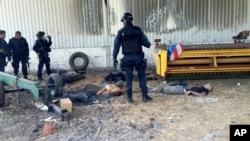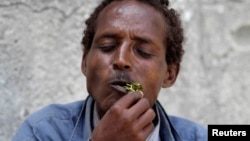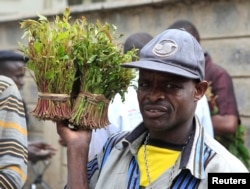Navigation
Install the app
How to install the app on iOS
Follow along with the video below to see how to install our site as a web app on your home screen.
Note: This feature may not be available in some browsers.
More options
You are using an out of date browser. It may not display this or other websites correctly.
You should upgrade or use an alternative browser.
You should upgrade or use an alternative browser.
Terror linked nations cutting deals with mexican drug cartels to enter US
- Thread starter tyroneweaver
- Start date
Sunni Man
Diamond Member
........................ ........................
........................
 ........................
........................Manonthestreet
Diamond Member
- May 20, 2014
- 35,723
- 24,269
- 1,945
saintmichaeldefendthem
Gold Member
What else can we expect from the first Muslim president?obama wants it like this.
tyroneweaver
Platinum Member
- Thread starter
- #8
Sunni, I bet you're a good hearted individual, but you really need to pull your head out on some issues.................................................
waltky
Wise ol' monkey
Uncle Ferd says, "Yeah...
... the jihadis anna Chinese are in cahoots...
... to invade America through Mexico."
... the jihadis anna Chinese are in cahoots...
... to invade America through Mexico."
waltky
Wise ol' monkey
Violence in Mexico increasing as cartels fight over El Chapo's territory...

Violence Among Mexican Drug Gangs Seen Increasing
September 08, 2016 — Authorities in Mexico’s southwestern state of Michoacan say gunmen shot down a police helicopter this week in a remote area where narcotics traffickers operate. The pilot and three police officers died in the crash, the worst such incident in Mexico since a military helicopter crash last year that killed 10 people.
See also:
Somali Ban on Popular Narcotic Takes Effect
September 07, 2016 - Somalia's ban on flights importing the popular narcotic khat from Kenya appears to be holding up in the capital, Mogadishu, although a region to the north is defying the ban.
Violence Among Mexican Drug Gangs Seen Increasing
September 08, 2016 — Authorities in Mexico’s southwestern state of Michoacan say gunmen shot down a police helicopter this week in a remote area where narcotics traffickers operate. The pilot and three police officers died in the crash, the worst such incident in Mexico since a military helicopter crash last year that killed 10 people.
The incident Tuesday in Michoacan comes at a time of increasing violence in Mexico from drug cartels fighting each other as well as law enforcement groups.
Homicides on the rise in Mexico
While Mexico’s organized crime groups have always engaged in violence, there was a dramatic rise in murders after President Felipe Calderon assumed office in 2006 and began a war on criminal gangs. By the time Calderon left office in 2012, the murder count had gone well over 20,000 per year. Under his successor, President Enrique Peña Ñieto, the murder toll began to subside, but still remains well above 18,000 per year. Recorded homicides in Mexico during the first six months of this year represent a 15 percent rise over the same period last year. According to Mexico’s National Board of Statistics, the murder rate last year was 16.9 per 100,000. By comparison, the national U.S. murder rate is around 4.5 per 100,000.
Balkanization of drug cartels
Crime experts see various reasons for the uptick in violence, including the imprisonment of Sinaloa cartel leader Joaquin “Chapo” Guzman, which has led to fighting to fill the leadership vacuum. But there are other factors as well. Tristan Reed is an international crime expert who keeps a special watch on Mexico for Stratfor, a global intelligence company headquartered in Austin, Texas. In a VOA interview, he explained how Mexican crime organizations have become more tightly identified with certain regions. “Fragmentation, what we call the ‘balkanization’ of organized crime in Mexico, is a trend that has been going on for decades now,” Reed said. Before 1980, the most powerful organized crime group in Mexico was based in the city of Guadalajara, in Jalisco state in central Mexico. But it was swept aside by gangs in northern states, closer to the U.S. border.

Federal police stand near the bodies of men who authorities say were suspected cartel gunmen at the Rancho del Sol, near Ecuanduero, in western Mexico.
Now, Reed said, smaller gangs have emerged in the states that produce most of the drugs being smuggled. In the area known as “Tierra Caliente,” (the hot land), which stretches over both Michoacan and Jalisco states, these groups operate on their own, but exist under the same geographic umbrella, as do gangs in other parts of the country. “There are distinct organizations that may be fighting with each other, that may be allied with groups from different regions. But ultimately the groups within each umbrella are fairly tight-knit in terms of operations, and allegiances and rivalries can emerge overnight because of that.” In the past these groups were mainly focused on producing heroin and marijuana, but Reed said they now have their own smuggling operations on the border, and have even set up distribution centers in Texas and other states.
Government efforts to stem violence
See also:
Somali Ban on Popular Narcotic Takes Effect
September 07, 2016 - Somalia's ban on flights importing the popular narcotic khat from Kenya appears to be holding up in the capital, Mogadishu, although a region to the north is defying the ban.
Yaasin Muuse, a airport staff member at Mogadishu's main airport, said no khat flights arrived the city Tuesday. “None of more than 10 khat flights which used to come to Mogadishu daily landed because of the government ban,” he said. In Mogadishu’s khat markets, only a few tables selling drinks and cigars were occupied, and the khat kiosks were empty. At Kenya’s Wilson airport in Nairobi, a reporter for VOA's Somali service said at least five planes loaded with khat cancelled their flights to Mogadishu, and most likely the shipment will be sent back to its original source because khat cannot be stockpiled — it has to be taken fresh.

Somalia's ban on flights importing the popular narcotic khat from Kenya appears to be holding up in the capital, Mogadishu, although a region to the north is defying the ban.
On Monday, the Somali government announced it was banning all flights from Kenya to Somalia carrying the stimulant, a plant whose leaves, when chewed, give the user a feeling of mild euphoria. “It is a temporary ban and we did it for mixed circumstances related to national interests,” Somali Aviation Minister Ali Ahmed Jangali told VOA. “I am not ready to give the details now, but security is one of them,” He said.

A vendor walks away with bundles of qat leaves from an open air wholesale market in Kenya's capital Nairobi,
A government security official, speaking on condition of anonymity, said the decision is part of security plans as Mogadishu prepares to host the 53rd summit of the East African bloc IGAD (Intergovernmental Authority on Development) this weekend for the first time, following decades of civil war and instability in the Horn of Africa state. Just a week ago, a car bomb killed more than 20 people near Somali's presidential palace. The blast was the latest in a series of attacks against hotels and restaurants by militant group al-Shabab.
Puntland defies ban
However, officials in Puntland, a semi-autonomous federal member state in the northeast of the country, ignored the government's edict. Five khat flights from Kenya landed at Galkayo airport and an airstrip at Qardho on Tuesday, and the cargo was unloaded. Puntland spokesman Abdullahi Jama Quran Je’el said the government's decision does not affect the region. “The federal government neither consulted with us nor informed us about the decision of the khat flights ban so we have nothing to do with that decision," he said.
Khat chewers reaction
Similar threads
- Replies
- 1
- Views
- 111
- Replies
- 15
- Views
- 295
- Replies
- 26
- Views
- 1K
- Replies
- 12
- Views
- 247
Latest Discussions
- Replies
- 3K
- Views
- 56K
- Replies
- 26
- Views
- 55
- Replies
- 179
- Views
- 975
Forum List
-
-
-
-
-
Political Satire 8872
-
-
-
-
-
-
-
-
-
-
-
-
-
-
-
-
-
-
-
ObamaCare 781
-
-
-
-
-
-
-
-
-
-
-
Member Usernotes 492
-
-
-
-
-
-
-
-
-
-
